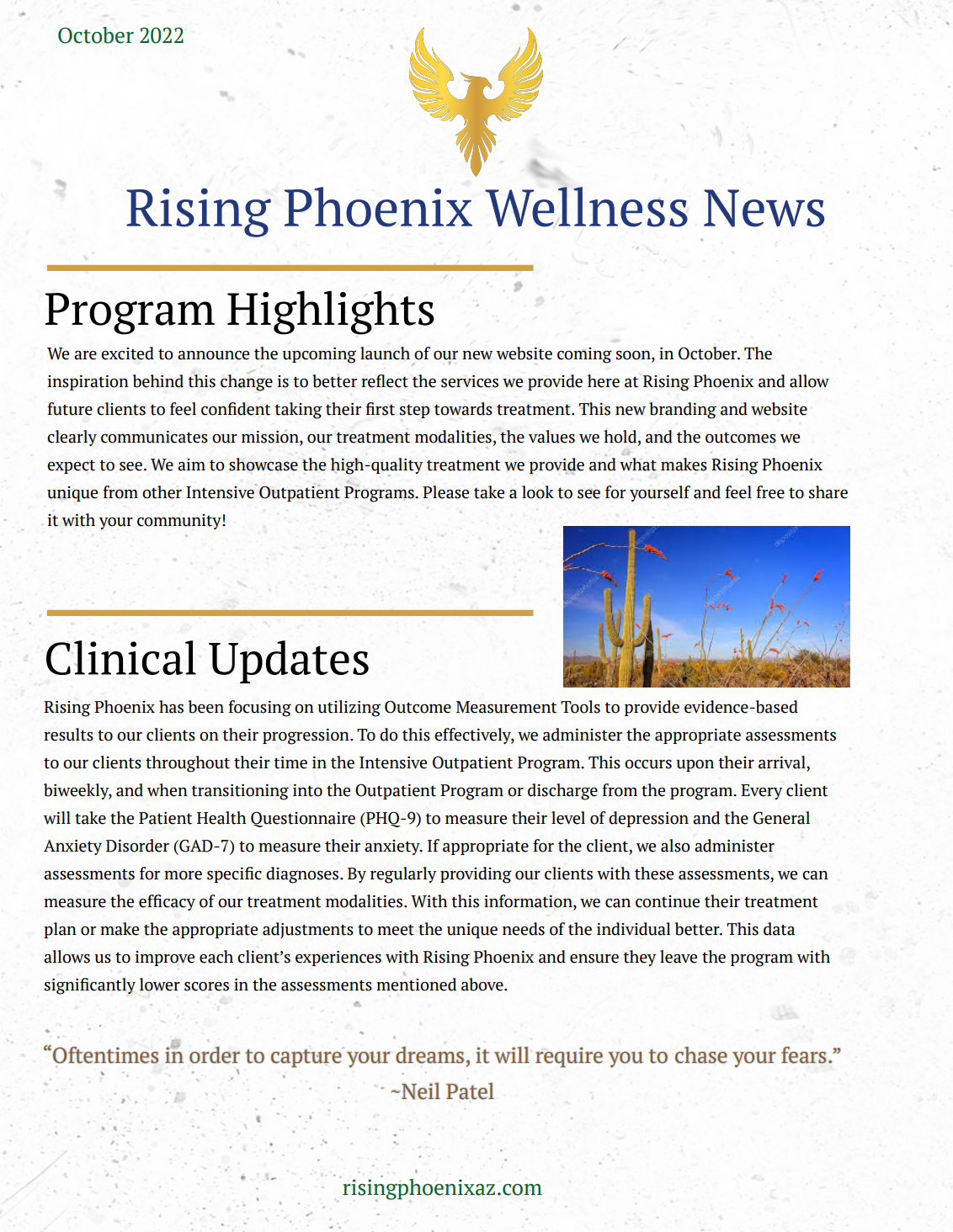Rising Phoenix Wellness Services believes in making an impact in the mental health and substance use industry.
We believe this requires us to not only treat our clients, but also to partner with and support the local community and state with resource navigation. Our goal is to help form a strong and resilient community where individuals and families can have their needs met and recognized. Research shows us that building strong and collaborative professional relationships is a cornerstone for maintaining an informed and educated community.
Recent Blogs

PHP for Alcohol Treatment
PHP Alcohol Treatment Alcohol addiction is a pervasive issue, deeply affecting individuals and their families. Finding the right treatment is crucial for those seeking to reclaim control over their lives. Partial Hospitalization Programs (PHP) for alcohol treatment...

PHP Drug Treatment
Drug addiction, a complex health challenge, necessitates effective treatment paths for recovery. Rising Phoenix Wellness champions PHP for Drug Treatment. Partial Hospitalization Programs (PHP) as a comprehensive solution, seamlessly integrating the intensity of...

Partial Hospitalization Program Benefits: 15 Ways They Help
Exploring the Partial Hospitalization Program benefits unveils a path to recovery that many might not know exists. In the realm of addiction treatment, options range from intensive inpatient care to flexible outpatient services. Each has its unique approach, catering...

